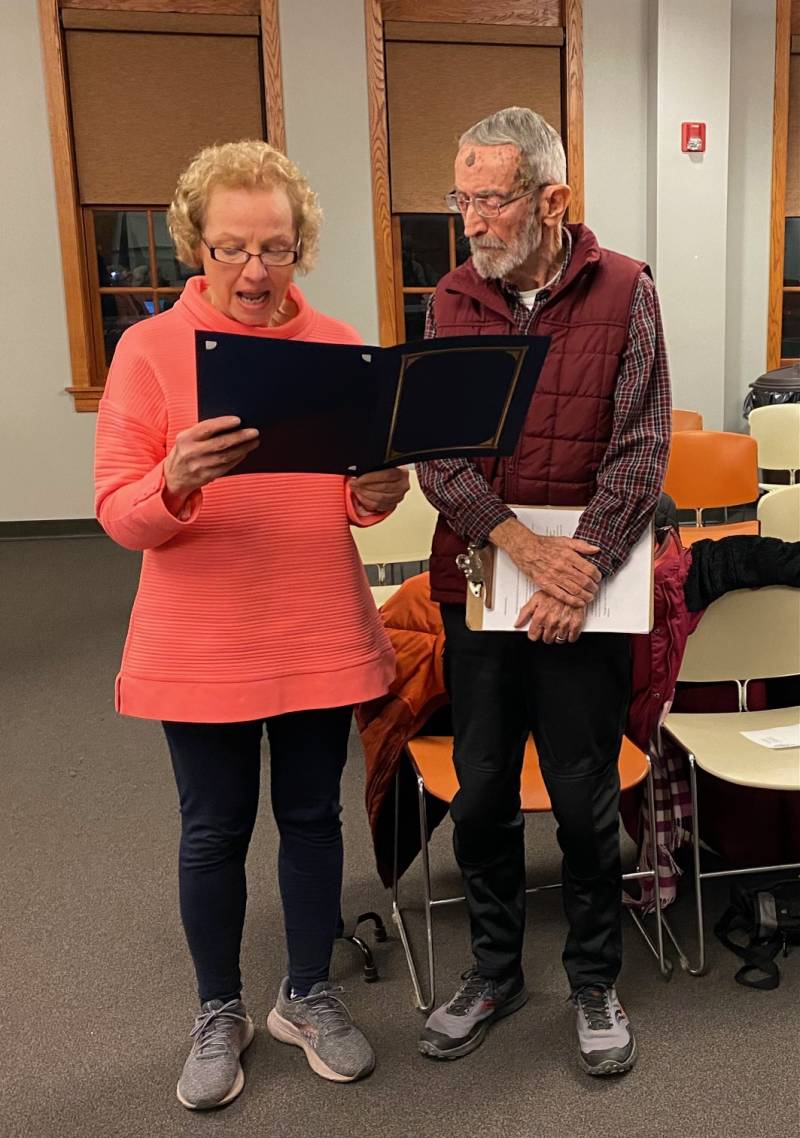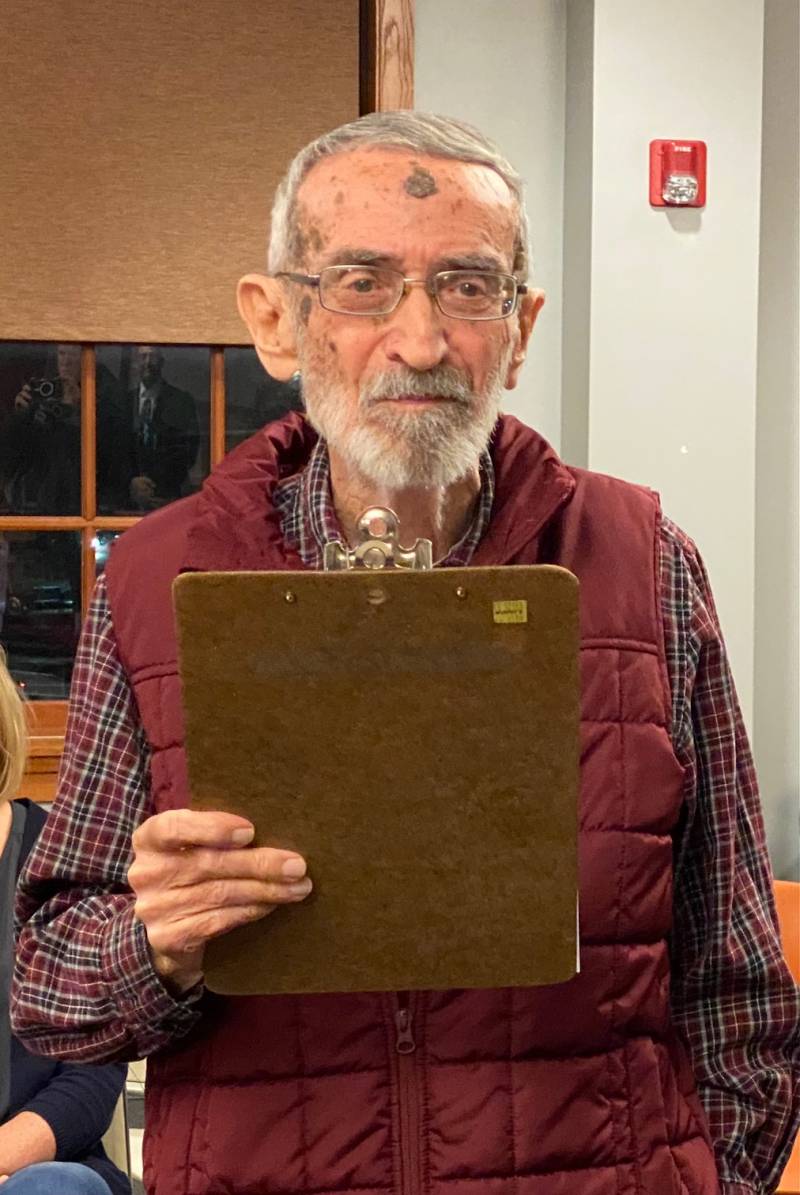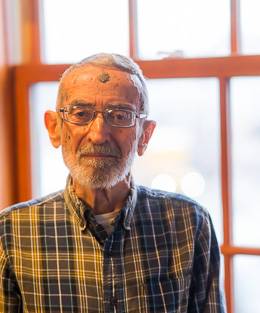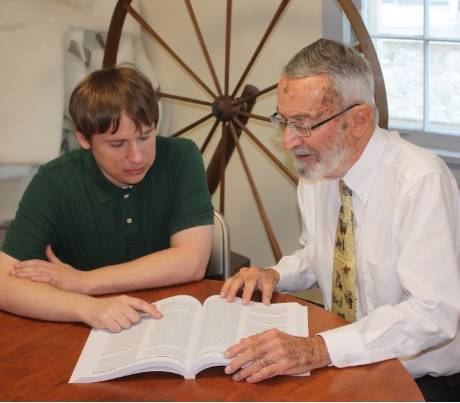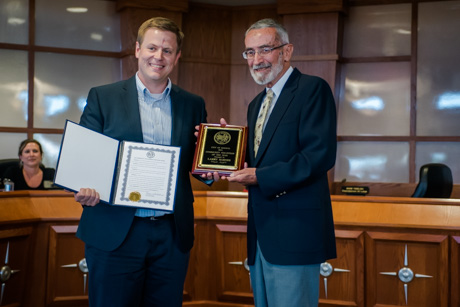Impact of Batavia's longtime source of history to be 'felt forever'
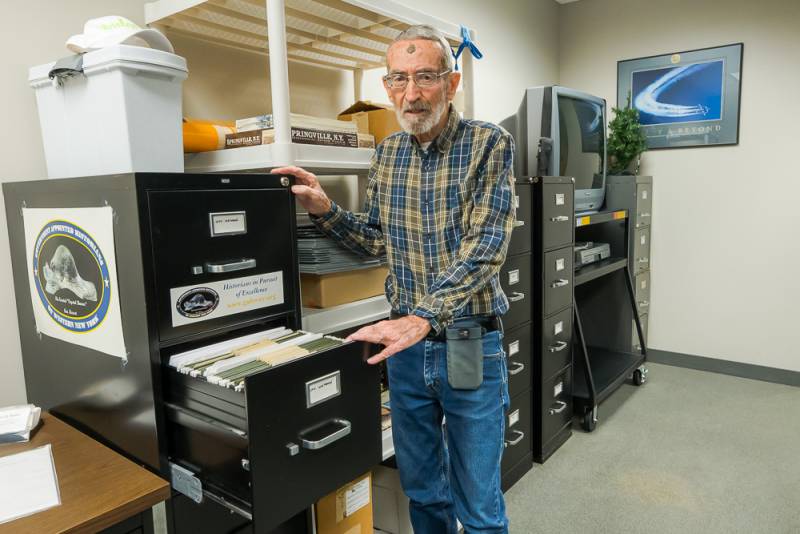
Photo by Howard Owens
A master researcher, author and presenter of local history, Larry Barnes became the face of all things Batavia as the city historian for 16 years until his retirement in December 2023. Soft-spoken but adamant about capturing various moments and people of history, including his latest penned venture into the lives of Black Batavians, Barnes, 83, passed away on June 21 at The Gateway Home in Attica, where he had received end-of-life care.
A GCC psychology professor-turned-historian in later life, Barnes also authored several books and scripted a play about the Brisbane Mansion, which is still a hot topic as city management works to put it on the selling block after the police station moves out into new digs downtown.
Barnes was present throughout the years of discussions about what to do with the police department in an antiquated building that once housed the Brisbane family, and he was pleased to see a final solution. He advocated for repurposing the West Main Street site instead of demolishing the property and its valuable city history.
Barnes was very active in the community, having served with several history-related groups, including the Landmark Society of Genesee County, Batavia Historic Preservation Committee, Genesee County Historians Association, Government Appointed Historians of Western New York and the Association of Public Historians of New York State.
It was when Barnes was a member of the Holland Land Office Museum board and city historian that Ryan Duffy met and made a connection with him. Duffy is the museum's executive director and the recently appointed city historian to take the reins in January.
“Larry was a mentor to me,” Duffy said Saturday. “When I came on to the museum, he was always there to help me out with anything with local history. He was always a resource for me and for the museum in general.
"He was the person who wanted me to become city historian after him. So he always admired what I did, and always, you know, pushed me to do more, but I always looked up to him in his research, and I always used it as a resource too, so there's a lot of things that he covered that I think if he hadn't covered it, we might have forgotten about it," Duffy said. "So his impact will be felt forever.”
Barnes was also a go-to source for area organizations, groups and even journalists who picked his brain about certain city topics, gleaning background for news articles. His gentle and willing manner, combined with a dry sense of humor, made interviews easy and informative.
For Duffy, he wants to make sure “I keep the legacy going,” he said.
For Barnes, the historian role was one of many passions that included photography, extemporaneous public speaking (he won a national competition in school), doing methodical research, and putting his highly creative skills to both fun and practical purposes by crafting small whimsical designs up to building two beloved homes.
He took his volunteer role seriously, even to the point of braving the wintry elements during the city's bicentennial celebration by standing on an outdoor stage to address the snow-covered crowd.
That volunteer gig shifted to a paid position, but only after Barnes' 16 years were nearly up -- when City Council voted to pay the role a $5,000 per year stipend.
His faithful service and untold hours were a testament to his belief in the importance of documenting history at any -- or no -- cost, which is a stepping off point for Duffy from here forward.
His body is to be cremated, and his earthly remains will be privately interred in the Historic Batavia Cemetery, another site that Barnes knew well.
A Celebration of Life service will be at 2 p.m. July 28 at the Main Street 56 Theater in Batavia. It will be a time of reflection, remembrance, celebration and sharing.
Go HERE for the full obituary.


